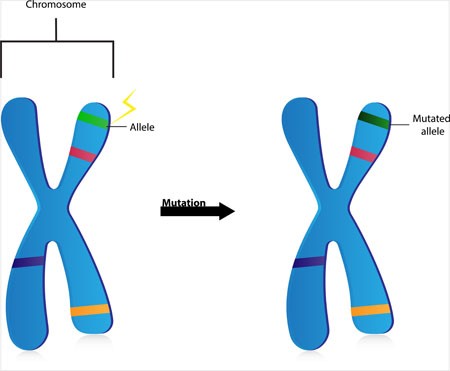Antibody Sirukumab Improves Depression and Anhedonia in Patients with Rheumatoid Arthritis
Patients with rheumatoid arthritis have high levels of the inflammatory proteins known as interleukin-6 (IL-6), which have been implicated in depression and stress. Rheumatoid arthritis is sometimes characterized by depressive symptoms as well. New research by Dai Wang and colleagues presented at the 2015 meeting of the Society of Biological Psychiatry suggests that treating the high levels of IL-6 in rheumatoid arthritis with the human anti–interleukin-6 antibody sirukumab can reduce symptoms of depression and anhedonia (loss of capacity to experience pleasure).
In the study, patients with rheumatoid arthritis and symptoms of depression or anhedonia were randomized to receive either placebo or sirukumab. After 12 weeks, those who received sirukumab had significantly reduced depression.
Editor’s Note: These data are consistent with meta-analyses showing that IL-6 is elevated in depression and with a study by Scott Russo showing that in animals, interfering with IL-6 blocks the development of depression-like behaviors that typically occur after repeated defeat stress (when an animal is subjected to attacks from a larger, more dominant animal).
Transcranial Direct Current Stimulation Reduces Depression Following Strokes
One-third of people who have strokes face depression afterward. New research is looking to expand the safe options for the treatment of depression following strokes. At the 2015 meeting of the Society of Biological Psychiatry, researchers led by Leandro Valiengo presented their successful randomized, sham-controlled double-blind study of transcranial direct current stimulation for post-stroke depression. Forty-eight people who had depression following a stroke were randomized to receive either a sham procedure or tDCS in twelve 30-minute sessions over a period of six weeks. After the six weeks, those who received tDCS had fewer symptoms of depression, more remission, and better response. There were no serious side effects.
TDCS is very low-level electrical current that has a positive (anode) or negative (cathode) electrode. Anodal stimulation of the cortex is usually associated with positive effects on mood and cognition. TDCS sessions in this study consisted of 2-mA anodal left/cathodal right dorsolateral prefrontal stimulation.
Editor’s Note: Placebo-controlled studies have repeatedly indicated that patients who have a stroke show better neurological and psychiatric response afterward when they are given an selective serotonin reuptake inhibitor (SSRI) antidepressant, whether or not they have depression or a prior history of depression. If a neurologist does not suggest treatment with an SSRI after a stroke, ask why not. Since antidepressants increase brain levels of brain-derived neurotrophic factor (BDNF) and increase neurogenesis, they could help with post-stroke recovery.
“De Novo” Mutations in Dozens of Genes Cause Autism
Two studies that incorporated data from more than 50 labs worldwide have linked mutations in more than 100 different genes to autism. Scientists have a high level of statistical confidence that mutations in about 60 of those genes are responsible for autism. So-called de novo mutations (Latin for “afresh”) do not appear in the genes of parents without autism, but arise newly in the affected child. The mutations can alter whether the genes get “turned on” or transcribed (or not), leading to disturbances in the brain’s communication networks.
The studies led by Stephan Sanders and Matthew W. State appeared in the journal Nature in late 2014. The identified genes fall into three categories. Some affect the formation and function of synapses, where messages between neurons are relayed. Others affect transcription, the process by which genes instruct cells to produce proteins. Genes in the third category affect chromatin, a sort of packaging for DNA in cells.
Before the new studies, only 11 genes had been linked to autism, and the researchers involved expect to find that hundreds more are related to the illness.
Editor’s Note: This new research explains how autism could be increasing in the general population even as most adults with autism do not have children. It should also put to rest the idea, now totally discredited, that ingredients in childhood immunizations cause autism. It is clearer than ever that kids who will be diagnosed with autism are born with these mutations.
With these genetic findings, the search for new medications to treat this devastating illness should accelerate even faster.
Bottom line: Childhood immunizations don’t cause autism, newly arising mutations in the DNA of parents’ eggs or sperm do. However, parental behavior could put their children and others at risk for the measles and other serious diseases if they do not allow immunizations. The original data linking autism to immunization were fraudulent, and these new data on the genetic origins of autism provides the best hope for future treatments or prevention.
Diabetes Drug Pioglitazone May Improve Bipolar Depression
The hypoglycemic drug pioglitazone is typically used to treat diabetes, but a 2015 study by A. Zeinoddini and colleagues shows that it may improve depressive symptoms in patients with bipolar disorder who do not have type 2 diabetes or the metabolic syndrome (characterized by high weight, cholesterol, triglycerides, and blood pressure).
Forty-four patients with bipolar disorder and a major depressive episode were randomized to receive either 30 mg/day of pioglitazone or placebo as an adjunctive treatment to lithium. Depressive symptoms were lower in the pioglitazone group at weeks 2, 4, and 6 of the six-week study.
No serious side effect occurred in the study, but pioglitazone use is associated with some risks in those using it for diabetes treatment. People taking pioglitazone for longer than a year have shown increased rates of bladder cancer. There is an increased risk of fractures of the upper arms, hands, and feet in female patients. The drug lowers blood sugar, but not enough to be a problem in people not taking other drugs that lower blood sugar. Pioglitazone can also cause fluid retention, worsening congestive heart failure. It can also cause mild weight gain, anemia, and sinus problems.





